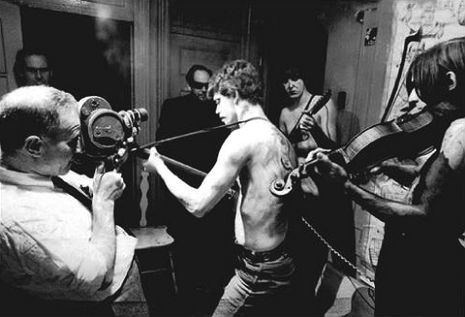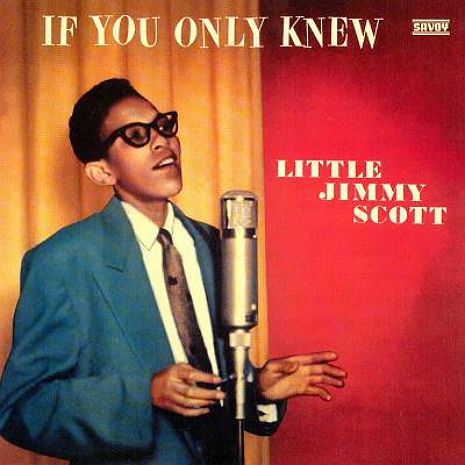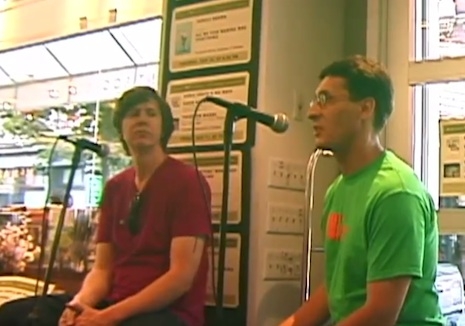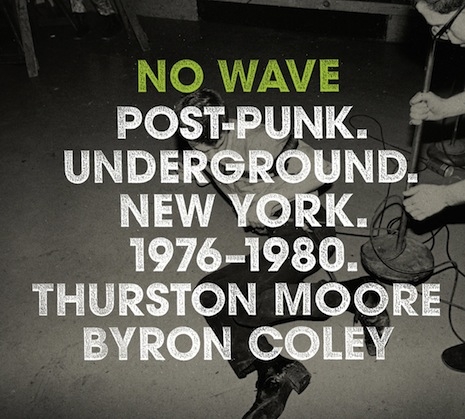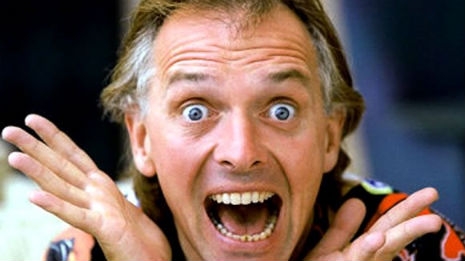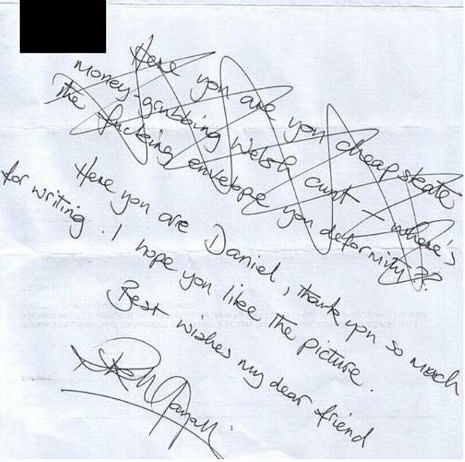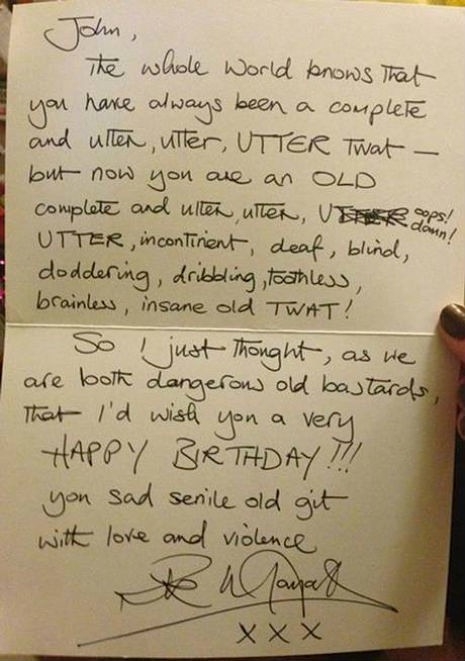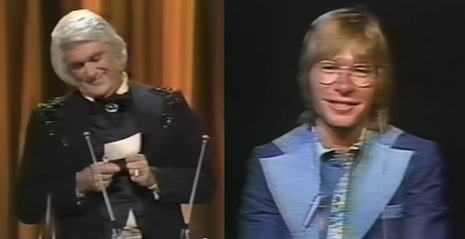
Fans of rock music and hip-hop love to reminisce over aberrant behavior at awards ceremonies, whether it’s Jarvis Cocker cheekily interrupting a “messianic” Michael Jackson production number at the 1996 Brit Awards, Kanye West running roughshod over Taylor Swift’s acceptance speech at the 2009 MTV Video Music Awards, or Ol’ Dirty Bastard upstaging Shawn Colvin at the 1998 Grammies with his insistent reminder that “Wu-Tang is for the children!”
One doesn’t associate such antics with the Country Music Awards, but when it comes to unscripted shows of disrespect, the CMAs may well boast the grandaddy of ‘em all. In 1975 Charlie Rich pulled a stunt so magnificently contemptuous, country music fans are still arguing over what Rich meant by it.
In order to appreciate the moment, a little background is in order. Like many musical genres—metal, punk, and rap come immediately to mind—country music has its perennial battles over who represents the heart of the genre, pitting the old-school likes of, say, Johnny Cash against those pop singers who represented the “sellout” impulse of watered-down country-lite in order to appeal to a much larger audience. During the mid-1970s country music was going through a civil war of sorts between the “authentic” core of the art form and the audience-ready pap that was threatening to dilute the genre’s identity. In 1974 Charlie Rich had won the CMA for “Entertainer of the Year”—nobody could argue with his country music bona fides—while “Female Vocalist of the Year” had gone to Olivia Newton-John, a figure about whom one could fairly argue whether she had anything to do with country music at all. Disgruntlement could be discerned in the farthest reaches country music industry. As “Trigger” at the Saving Country Music website states,
At the 1974 CMA Awards, a firestorm erupted when Olivia-Newton John was awarded the “Female Vocalist of the Year.” This created a backlash, including many traditional country stars met at the house of George Jones and Tammy Wynette and decided to form “ACE” or the Association of Country Entertainers to attempt to fight the influx of pop stars into the genre.
A year later, when it came time for Rich, as the reigning award-winner, to present the award to the 1975 Entertainer of the Year, he came fully prepared to make a strong point. Taking the stage after Glen Campbell’s intro, Rich, in his unsteady, slurred vocal patterns, betrayed signs of recent intoxication—it is said that Rich had been enjoying gin and tonics backstage. After reading aloud the nominees—John Denver (punctuated with a loooong deadpan pause), Waylon Jennings, Loretta Lynn, Ronnie Milsap, and Conway Twitty—Rich managed to peel apart the envelope. After glimpsing the name of the 1975 winner, Rich suavely produced a Zippo lighter from a pocket, set the card on fire, and, smirking, coolly intoned, “My friend, Mr. John Denver!” Poor Denver, whose cheerful visage was being piped in from distant Australia—yet another sign of his distance from the country music scene?—clearly had little way of knowing what had happened.
+-+LP+RECORD-418333_465_459_int.jpg)
Wait—he set fire to the card?! When you watch the video, you can see no small defiance in Rich’s eyes, and the audience laughs at the gesture, as it will laugh at anything odd and unexpected. But what did Rich mean by it? At this point we get varying interpretations. The Country Music Hall of Fame has this to say about the incident:
At which point he pulled out his Zippo lighter and set fire to the card holding the name of his successor. Rich held the burning card up for the cameras on the nationally televised live show and smiled a big smile of triumph. The message to anyone watching seemed clear: in Rich’s eyes, a West Coast neo-folkie like John Denver, who had built his career on pop radio, was not welcome in country music.
As Rolling Stone points out, not everyone agrees that Rich was looking to make so strong a statement, in particular Rich’s own son:
Most people interpret the event as a protest against country music’s pop crossover (the CMA blacklisted him from future shows), but Rich’s son disagrees, blaming the incident on an accidental combination of prescription pain medication and a few too many gin and tonics: “Anybody that knows anything at all about the history of my father will know that it simply wasn’t in his mind set to judge someone for not being ‘country enough,’ ‘blues enough,’ rock enough’ or ‘anything enough.’”
Charlie Rich Jr.‘s lengthy and eloquent account can be found on his website—it’s well worth reading for anyone interested in the affair. He claims that his dad disliked the competition implied by doling out awards for art, was fond of Denver, never had a bad thing to say about any musician, and was on pain medication on the night of the show due to broken bones in his foot.
This defense is undercut by Rich’s own statement, at the start of his remarks, that the CMA in his hand is “the most beautiful thing in the world right here.” Personally, I think the gesture was partly a joke, partly the result of mixing meds and booze, and partly a sincere expression of annoyance at the notion of John Denver as a country music legend—it’s everything mixed up together. Rich may not have realized that the “statement” value of the gesture would tend to outweigh every other part of it, that observers would be eager to emphasize the anger inherent in it over every other impulse. For me, it remains a beautifully ambiguous gesture, combining both anger and whimsy, and is all the more resonant for being impossible to pin down.
H/T The Little Lighthouse radio program
Posted by Martin Schneider
|
06.13.2014
11:40 am
|
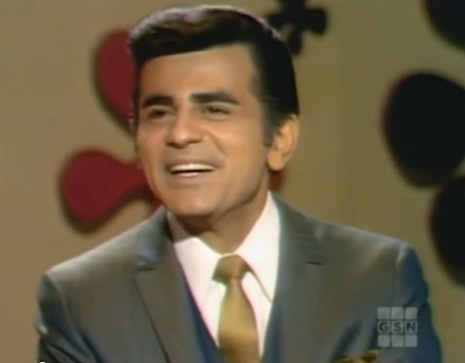
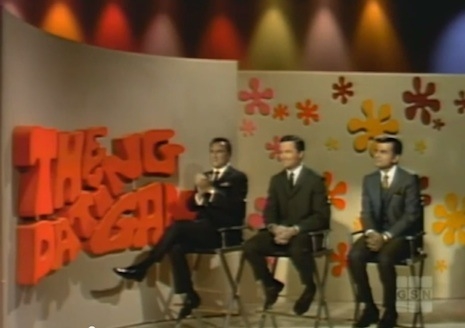







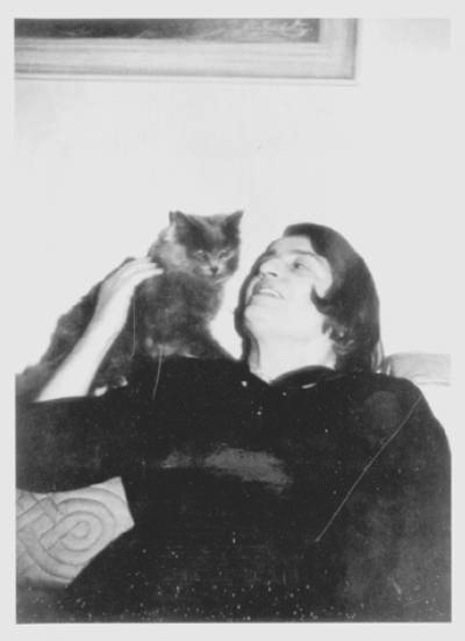
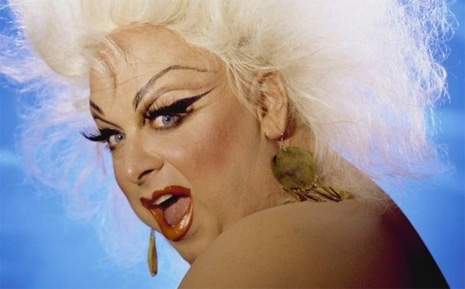
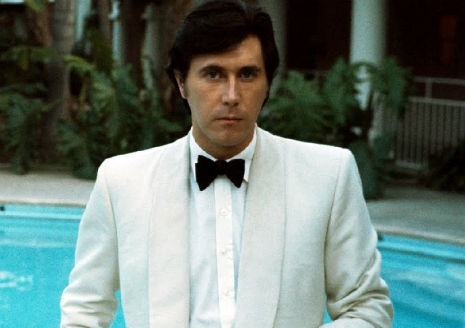

+-+LP+RECORD-418333_465_459_int.jpg)
